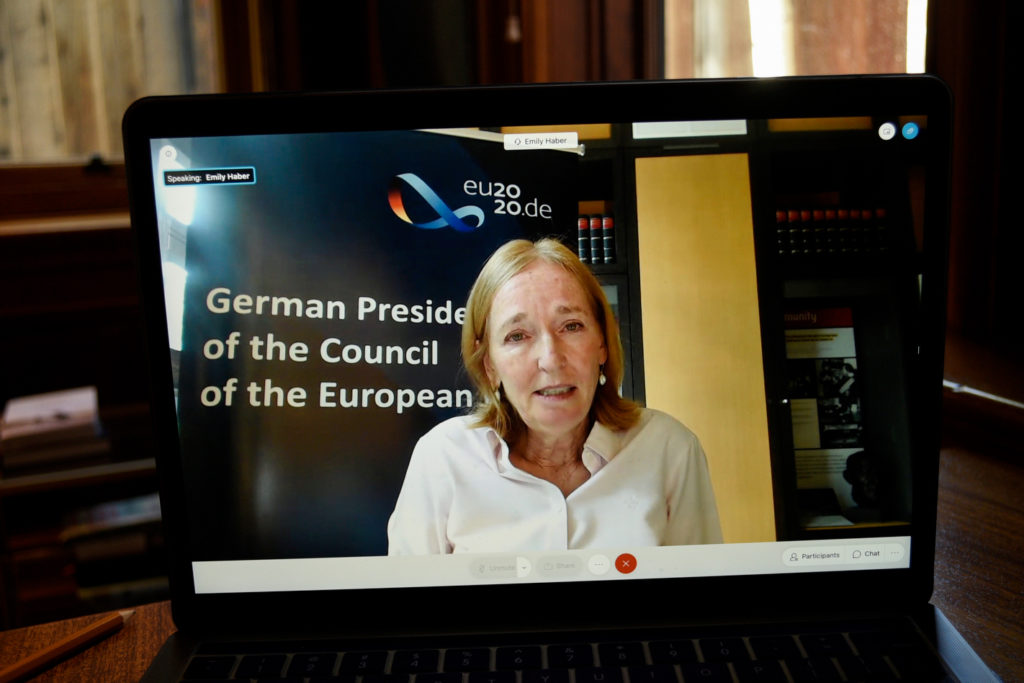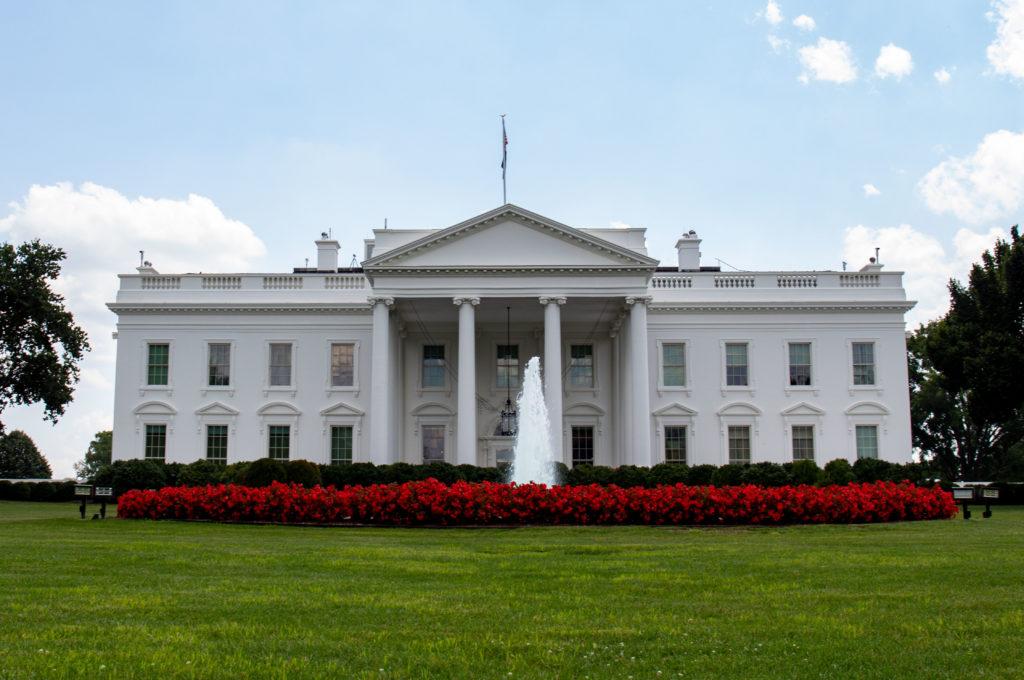The German ambassador to the United States discussed how different countries are managing the COVID-19 pandemic at a webinar on Monday.
Ambassador Emily Haber discussed Germany’s and Europe’s responses to COVID-19 and compared theirs to other countries’ responses. Hope Harrison, a professor of history and international affairs at the Elliott School of International Affairs, moderated the event, the first in the “Europe since COVID-19” series.
In case you missed it, here are some highlights from the event:
German response to COVID-19
Haber said in a stroke of “pure luck,” a slew of false positives rallied the nation to action and prevention early on in the pandemic. But she said some Germans continued to travel and ignore social distancing guidelines, even after the dangers of the virus were known.
Haber said the German government has pushed several economic reforms because of the impacts of COVID-19. She said the government has issued allowances to make up for lost wages during the pandemic and passed economic legislation to prevent liquidities, shortages and bankruptcies.
Haber said disparities in infections related to age and gender exist in Germany, with men and the elderly being disproportionately infected.
“The elderly, especially in the early phase of the pandemic, died in disproportionate numbers, but what we’re not able to do is to determine whether certain groups of the population other than by gender or by regional yardsticks, etcetera, have been affected,” Haber said. “The data do not make a case for that.”
Haber said while some German citizens have resisted wearing masks – with some far-left or far-right groups organizing by the tens of thousands to protest mask mandates and other safety ordinances – Germans have largely supported the safety measures the government has passed.
“All in all, the phenomenon that you can see in Germany is that people rallied around the flag,” Haber said. “Sixty-six percent of Germans say that they are satisfied with how the government has acted.”
National and international efforts to fight the virus
Haber said Germany largely looked to protect national interests at the beginning of the pandemic but has since refocused its efforts to cooperate with other regional and international powers.
“We did what many tend to do in times of crisis,” she said. “You take care of your own. And you don’t give a lot of thinking to the long-term price tags that this may bring.”
Haber said the European Union is providing assistance to other countries in developing and potentially distributing a vaccine.
“The European Union in effect has taken the lead in shaping the international effort for supporting and searching for a vaccine, the access to it, the distribution of it,” Haber said.
Haber added that countries must support each in containing the virus because of the globalized state of the world.
“Because even if we fare well, and if the United States fares well, we’re part of a world that is totally interconnected, and the virus will come to haunt us again if we don’t make sure that other affected countries in Asia, in Africa, in Latin America, are not being put in a position to do containment of the pandemic themselves,” she said.








